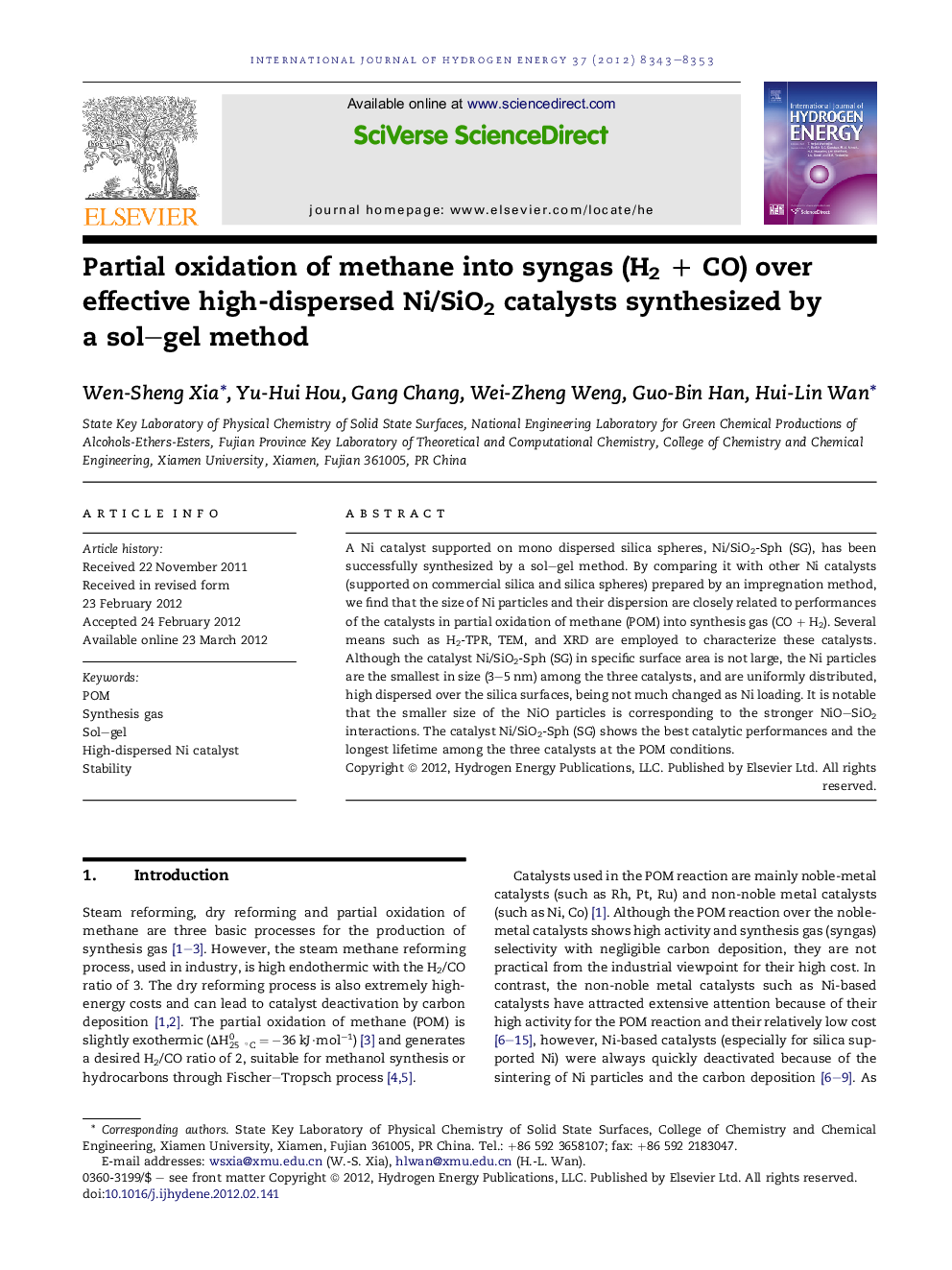| کد مقاله | کد نشریه | سال انتشار | مقاله انگلیسی | نسخه تمام متن |
|---|---|---|---|---|
| 1275334 | 1497559 | 2012 | 11 صفحه PDF | دانلود رایگان |

A Ni catalyst supported on mono dispersed silica spheres, Ni/SiO2-Sph (SG), has been successfully synthesized by a sol–gel method. By comparing it with other Ni catalysts (supported on commercial silica and silica spheres) prepared by an impregnation method, we find that the size of Ni particles and their dispersion are closely related to performances of the catalysts in partial oxidation of methane (POM) into synthesis gas (CO + H2). Several means such as H2-TPR, TEM, and XRD are employed to characterize these catalysts. Although the catalyst Ni/SiO2-Sph (SG) in specific surface area is not large, the Ni particles are the smallest in size (3–5 nm) among the three catalysts, and are uniformly distributed, high dispersed over the silica surfaces, being not much changed as Ni loading. It is notable that the smaller size of the NiO particles is corresponding to the stronger NiO–SiO2 interactions. The catalyst Ni/SiO2-Sph (SG) shows the best catalytic performances and the longest lifetime among the three catalysts at the POM conditions.
► Ni catalysts supported on mono dispersed silica spheres have been prepared.
► The catalysts prepared by a sol–gel method show good POM performances & stability.
► The active sites (Ni) are small in size and uniformly distributed on silica.
► The Ni–SiO2 interactions are increased as the size of the Ni particles decreased.
► More numerous Ni particles that interacted with silica are vital to POM stability.
Journal: International Journal of Hydrogen Energy - Volume 37, Issue 10, May 2012, Pages 8343–8353